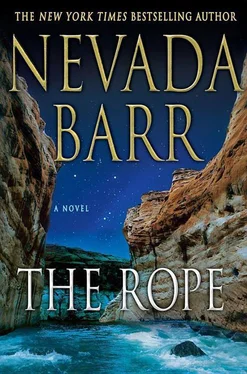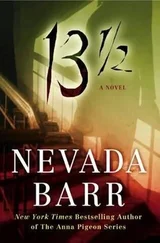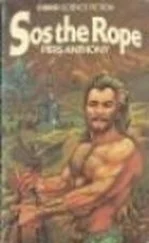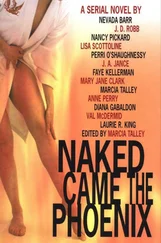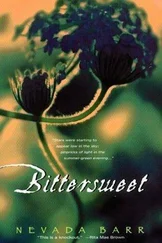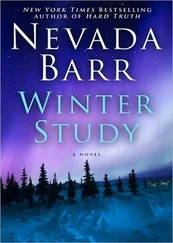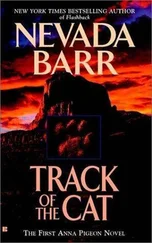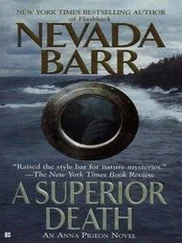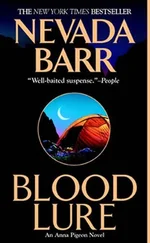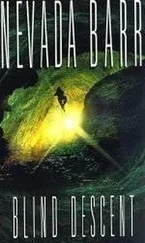Still and all, she doubted that he was a “broken-down old ranger,” though she suspected he used the line with some frequency. Unoffended, Jenny went to fetch coffee. Steve Gluck turned a tired smile on Anna.
“Jim here says you’ve had quite an adventure.”
He waited with his sleepy smile while Anna decided what she was going to tell him. All three law enforcement rangers bided in polite silence. A scholar of silences from years backstage, Anna could tell in a heartbeat whether an actor paused or forgot his line, whether an audience was asleep or in awe, whether the silence was active and tense or dead air, momentary confusion or smug prescience.
The three ranger silences radiating at her were as distinct as the men themselves. Levitt, young and fit and stony-faced, leaked the joyous excitement of a puppy ready to be taken on the best walk ever. Andrew Madden’s silence was hungry and calculating. He needed information so he could start the political spin in his direction should Anna pony up anything in need of spinning. The Bullfrog district ranger—the only one of the three confident enough to allow the vulnerability of facial expression—was just a man waiting to get the details on one more hard dirty job he needed to do in a long line of hard dirty jobs he’d plowed through during his career.
Anna told her story again.
As she talked, her voice low and even, her sentences with beginnings, middles, and ends, her plotline sensical, her timeline as logical as a person drugged to the gills, in pain, and dehydrated could make it, she could tell she was not showing enough trauma to satisfy her audience. Not that she suspected for an instant any of them wished her ill. They wore varying degrees of the same look her sister the psychiatrist wore when she thought Anna was hiding some metaphorical boil that would heal better if lanced.
The lack of emotion surprised Anna as well. Trained in an era where a person couldn’t cross Rockefeller Center without stepping on half a dozen psychotherapists, she worried she was bottling up, repressing, in denial, or one of the great many bad labels good old-fashioned stoicism had had heaped upon it.
When she began relating how she had found long brown hair as she dug a cat hole in the sand, she realized she was doing none of those things. She had not merely survived but won. Winning, and the fact that, unlike for Jenny, there had been no witnesses cheering and swilling beer as they watched her humiliation, allowed her a shred of dignity. Physical violation was the tool men traditionally used to debase women. In wars and feuds men debased women for the sole purpose of humiliating the men to whom they belonged, reducing the women to nothing more than vessels to carry man’s hatred for man.
Maybe that was why Anna left out the detail that she had been cut with the casual mockery of a boy carving his initials in his desktop.
She also did not tell them where the solution hole was, insisting she’d have to take them there herself. Had she done otherwise, she knew, as female, victim, and non-law-enforcement personnel, she wouldn’t be allowed to accompany those who went to make the arrest. Anna was determined to see what her monster looked like by the light of day, how he looked beaten, in handcuffs, outnumbered, outsmarted, outgunned. She needed the monster, grown to enormous proportions in her mind, cut down to size.
Anna’s courage awed Jenny. The little Pigeon had snatched power from a psycho-rapist or psycho-rapists. Regardless of what she said, Jenny believed she was raped. The way her small, competent hands hovered protectively over her thighs, the way she kept plucking the khaki trouser leg away from her skin, her aversion to the three hulking males, suggested Anna’s story had missing chapters. Anna’s violation enraged Jenny. Anna’s escape and trapping the rapist elated her.
Jenny was rapidly forgiving herself for falling into obsession over the woman from New York City. Who wouldn’t? Gay or straight, anyone with a soul would have to be enamored of her. Even as Jenny laughed at herself, it amazed her that Andrew, Steve, and Jim weren’t stumbling over each other to pay homage.
Buddy nestled in her arm, Anna was telling the law enforcement rangers about coming on a woman and three men of college age, of how one of the men was taking out his dick while another held the woman and the third watched.
The picture she painted jolted Jenny back to her sophomore year. At twenty she already knew her sexual orientation was firmly in the direction of the female of the species. She had known it since she could remember. As a tyke she’d loved dolls and girls and believed without reservation that boys had cooties. In middle school, when the other girls were proclaiming undying love for their favorite Beatle, Jenny was lusting after Linda Ronstadt. As a teen she’d had posters of Jane Fonda as Barbarella on the wall of her room. In college she’d taken her first lover, Adafaire Mason. Obsession with this first, long-imagined and magnificently forbidden, fruit overwhelmed everything else in her life.
Memories of her sexual assault were blessedly confused. As she’d confessed to Anna, she’d been drinking. She wasn’t drunk, but close. She remembered the scrape of blunt fingernails and the sickening slip of nylon over her skin as her panties were dragged off. On bad days she could still feel the suffocation. A boy straddled her, his butt on the back of her head holding her down, mashing her nose and mouth into her own vomit. On really bad days she could feel the pounding as the rapists took turns. Alone, in a crowd of dead-eyed girls, and boys cringing with feral need, it had seemed to go on for eons. Looking back, she knew it had only been minutes. Two of the three rapists came in a thrust or two. The third Jenny didn’t feel inside her at all, but the pounding of his pelvic bones was the most violent.
Much later she realized he had probably come before he entered her and was putting on a show to cover his embarrassment at having prematurely ejaculated.
The memory that was clear as crystal and sharp as a razor was her cheek on the splintering planks, craning her neck, looking for Adafaire, finding her, tall and blond and confident, standing at the edge of the circle that had formed around the table. Jenny had screamed her name. Adafaire had a beer in her hand. As their eyes locked, she raised the bottle to her lips and took a drink. Then she turned her back and walked into the darkness beneath the trees.
Jenny came to know the major players, five “good boys,” white, from upper-middle-class families. One was on the swim team, two others on the varsity wrestling team, the last hangers-on, soaking up what reflected glory they could. They were the ones who held her down on the rough planks, one sitting on her head, his knees on her upper arms, the other at her legs pulling them apart like a child breaking the wishbone of a chicken. Jenny knew this because she had researched them, dug for their secrets, watched and followed them.
Even before she’d been left to crawl off amid the splinters and spilled beer to put herself together as best she could, she knew she would not report the rape. There would be no justice for her—but, she had promised herself, there would be revenge.
The greatest revenge was saved for Adafaire. Cowardice and betrayal were sins greater even than the bestiality of the boys or the malice—or worse, pity—in the faces of the girls who had watched and done nothing.
Bony little Ms. Anna Pigeon was not a coward. For the first time in the decade since her sophomore year in college, Jenny thought she might again give into obsession, let it take her from lust maybe all the way to love.
Love and marriage. Jenny pushing a baby carriage, she mocked herself, her mind abruptly returning to the present.
Читать дальше
